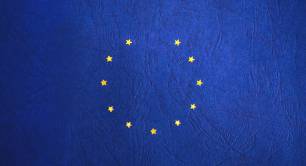Social enterprise bodies call for European ‘Buy Social’ campaign in list of demands to MEPs
Representatives from 20 European countries have sent a wishlist to the newly-elected European Parliament, calling for more support for social entrepreneurship and innovation.
The appeal is signed by 24 national organisations plus Euclid Network – the European network representing social enterprises – and includes a request for a Europe-wide campaign to boost visibility of the continent’s 2.8 million social economy organisations. This would build on existing examples, such as those led by Social Enterprise UK and the Amsterdam-based Social Enterprise NL (both of which signed the joint statement). The group wants EU institutions to back and fund this campaign, and is looking into getting a “famous European” on board as ambassador; it is also looking into replicating Social Enterprise UK’s Buy Social Corporate Challenge, which encourages large corporates to include social businesses within their supply chain.
Social economy enterprises – a broad term used in Brussels that includes cooperatives, mutual societies, non-profit associations, foundations and social enterprises – employ around 19 million people and account for 6.3% of the total paid workforce in Europe.
Targeted at the bloc’s 751 Members of European Parliament elected last month, the statement also calls for better access to finance for social enterprises, by simplifying application procedures for EU funding, especially the European Social Fund, and “investing in innovative financial products tailored to the specific characteristics of social enterprises”.
Signatories want to see an increase in the budget of the EaSI guarantee instrument, which enables microcredit providers and social enterprise investors to access capital to lend to potentially risky borrowers; guarantees and counter-guarantees provided by the European Investment Fund provide a partial credit risk protection for first-time loans to eligible beneficiaries. The current budget is €96m – while the official statement does not give a number, Pioneers Post understands that signatories want to see double this amount in the next budget period (2021-27).
The group also wants to see “binding social and environmental clauses in 100% of EU tenders and public contracts”. The public procurement market in the EU is worth a total of about €1.9 trillion per year; there is no data on the number of contracts awarded to social enterprises, but some 55% of EU procurement procedures use lowest price as the only award criteria, according to Euclid Network.
The other requests in the statement are:
- Advance towards a common understanding on the legal and regulatory framework of social enterprises across Europe through cross-border learning and cross-border exchange.
- Invest and educate in impact measurement for social enterprises to better demonstrate their positive effect on the economy and society.
- Enhance social innovation across Europe through supporting internationalisation of social enterprises; building and enhancing (academic) knowledge on social entrepreneurship; encouraging educational institutions such as schools and universities to cover social entrepreneurship skills in their curricula.
- Support intermediary organisations offering social enterprises assistance in financing, networking, business advisory and development support.
The national networks plan to organise events in their countries with MEPs to discuss the statement.
Euclid Network said no MEPs have yet responded to their call. However, in responses gathered from political parties before the elections and compiled by Social Entrepreneurship Netzwerk Deutschland (SEND), the European Greens – who increased seats by almost 40% in this year's elections – said social and environmental enterprises “should be given every encouragement”. Among the Greens' aims for the next Parliament is “to move from soft principles on social policy to hard legislation”. The Socialists and Democrats proposed to make social and environmental crtieria compulsory in public procurement, and said a new ‘European social label’ would introduce common standards and make social enterprises more visible. However, the latter proposal has earned mixed reactions to date.
Header image: Election night, 2019. © European Union 2019. Source: EP | Didier BAUWERAERTS


